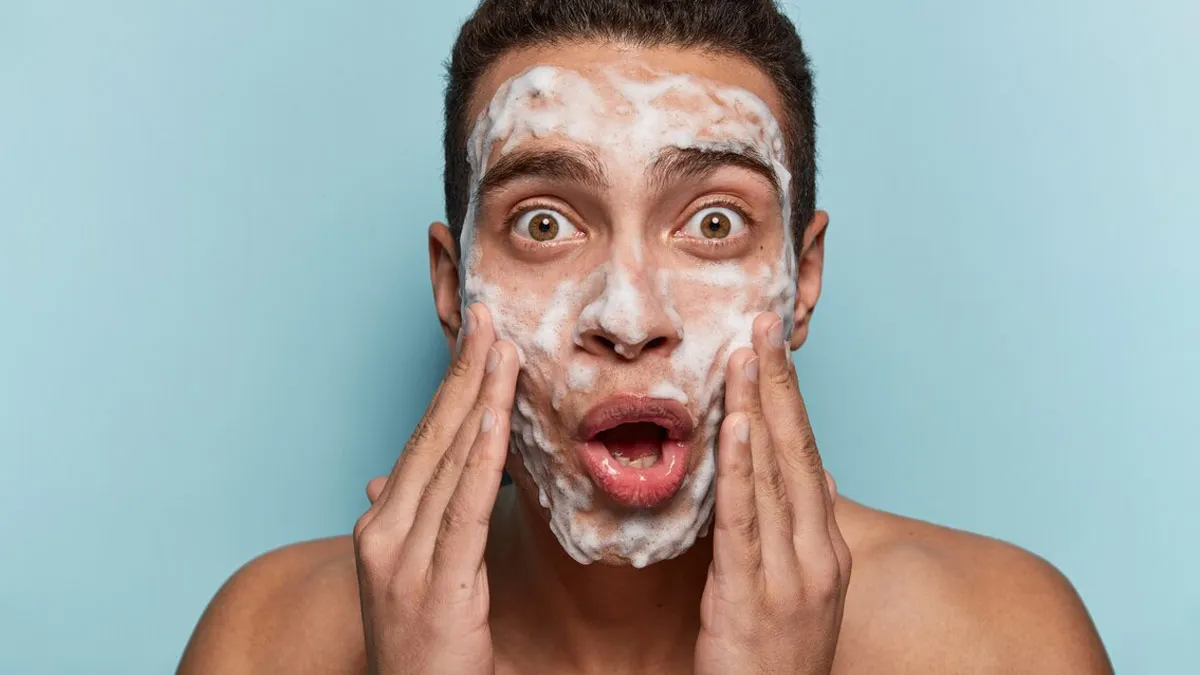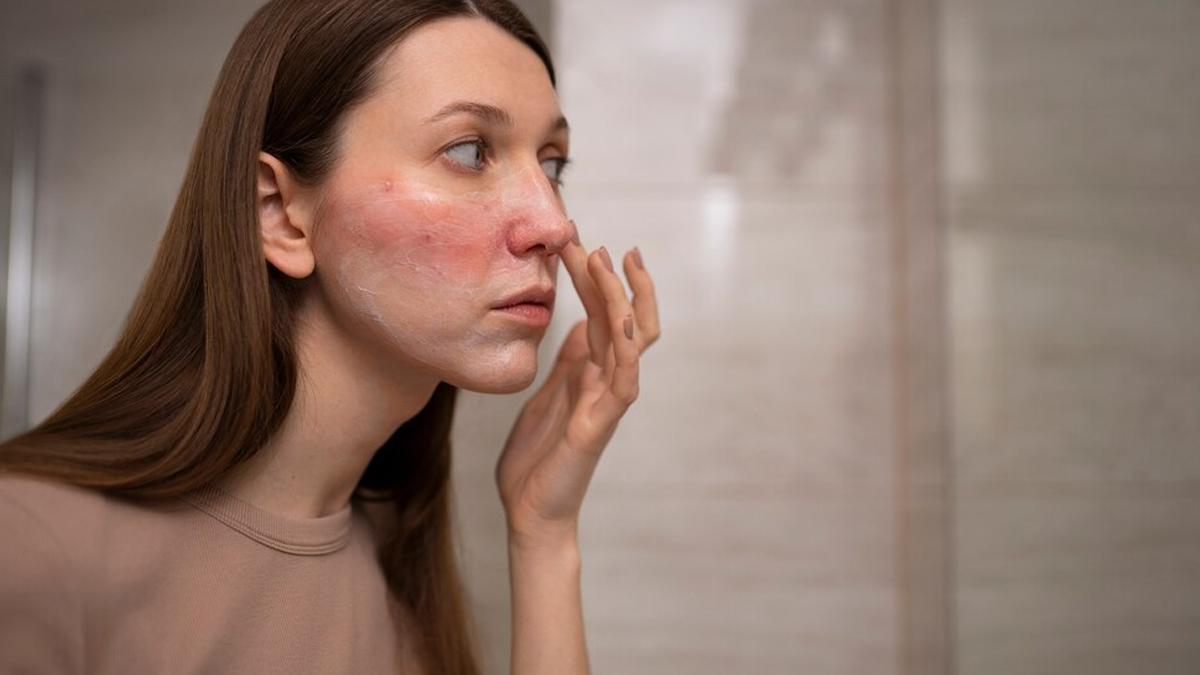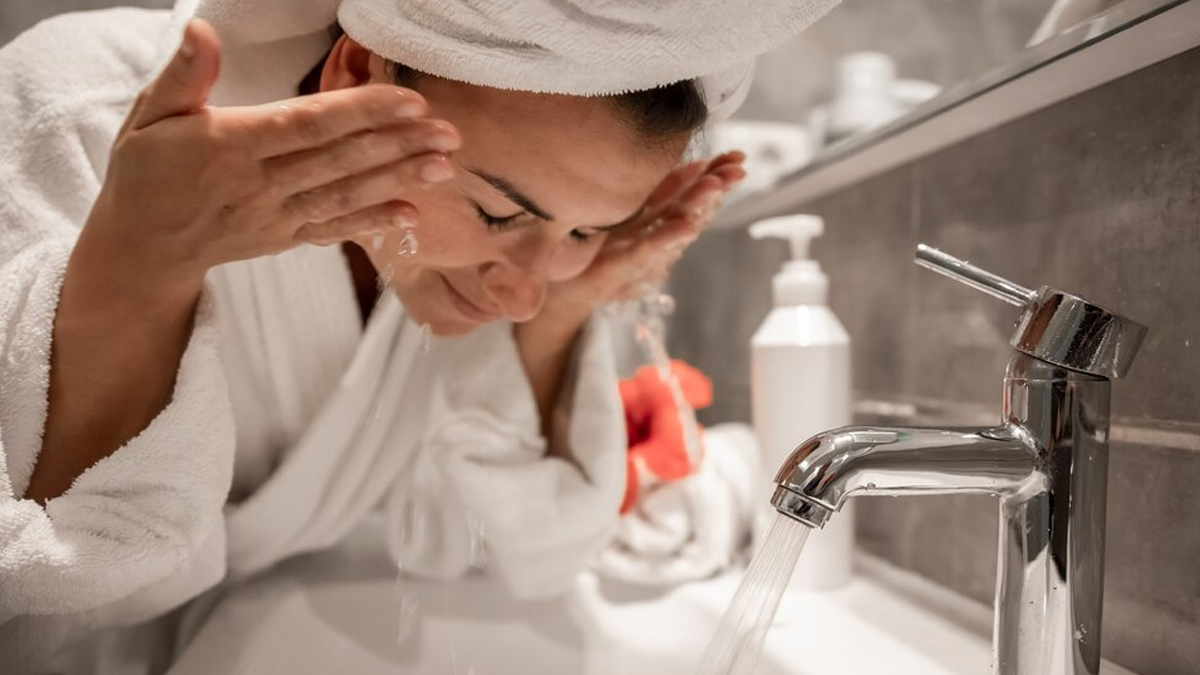
Washing your face is a fundamental part of a skincare routine, but like most things in life, too much of it can be harmful. You may have heard that cleaning your face often helps maintain clear skin, but did you know that overwashing can have the opposite effect? We spoke to our expert Dr Vidushi Jain, Dermatologist and Medical Head, Dermalinks, Noida and Ghaziabad, who explained what happens to your skin when you wash your face too frequently and provided tips to help you maintain a healthy skincare balance.
Table of Content:-
Side Effects Of Washing Your Face Too Often
1. Removal of Natural Oils

One of the most significant consequences of overwashing your face is the removal of your skin’s natural oils. Our skin produces oils, also known as sebum, crucial for maintaining hydration and protecting the skin from external environmental factors. According to the International Journal of Research Publication and Review, excessive use of face wash can remove the skin's natural oils, weakening the moisture barrier. This may lead to dryness, irritation, and an increase in oil production as the skin tries to make up for the loss.
2. Dryness and Flakiness
“Another issue caused by overwashing is dryness. When the skin's moisture barrier is compromised, it can become excessively dry, rough, and flaky,” said Dr Jain. In extreme cases, the skin can even crack, leading to discomfort or pain. Overwashing makes it difficult for the skin to maintain its optimal moisture levels, leaving it parched.
Also Read: Morning Ritual Goals: 5 Benefits of Dipping Your Face in Ice Water
3. Compromise Skin Barrier

Your skin has a built-in barrier that protects it from harmful elements like bacteria, pollutants, and allergens. This barrier is made up of a combination of natural oils and proteins that keep moisture in and harmful substances out. When you overwash your face, you weaken this protective layer, making the skin more vulnerable to damage. A compromised skin barrier makes your skin more susceptible to sensitivities, including redness, irritation, and itching.
4. Overactive Oil Glands
“Ironically, overwashing your face can lead to overactive oil glands. When you strip your skin of its natural oils, your body goes into overdrive to replenish what’s been lost,” added Dr Jain. This often results in the skin producing excess sebum. While this is the skin’s natural response to dehydration, it can cause more harm than good. Excess oil can clog your pores, leading to breakouts, acne, and blackheads.
5. Increased Redness and Sensitivity
Overwashing can make your skin hypersensitive, increasing its reaction to external triggers like skincare products, weather conditions, or even simple facial movements. When the skin barrier is weakened, it becomes more prone to redness, irritation, and a heightened sensitivity to products. This is especially concerning if you use products with strong ingredients like alcohol, fragrance, or acids, which can worsen irritation.
Routine Tip

So the question is, how can you avoid the damaging effects of overwashing while still keeping your skin clean and healthy?
According to the American Academy of Dermatology Association (AAD), cleanse your face once in the morning, once before bed, and also after intense sweating. Sweat, especially when trapped under a hat or helmet, can irritate the skin. It's advisable to wash your face as soon as possible after sweating to prevent this.
“Opt for a gentle, non-stripping cleanser that doesn’t contain harsh chemicals or fragrances. Look for products designed for your skin type, whether you have oily, dry, or sensitive skin,” advised Dr Jain.
[Disclaimer: This article contains information provided by an expert and is for informational purposes only. Hence, we advise you to consult your professional if you are dealing with any health issues to avoid complications.]
How we keep this article up to date:
We work with experts and keep a close eye on the latest in health and wellness. Whenever there is a new research or helpful information, we update our articles with accurate and useful advice.
Current Version
